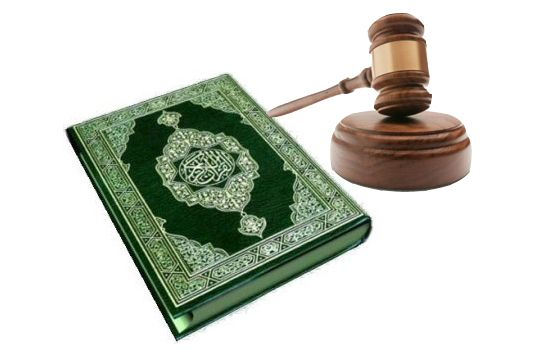Understanding Maintenance of a Muslim Divorced Wife
Maintenance of a Muslim divorced wife is a crucial aspect of Muslim personal law, aiming to protect her financial security and ensure dignity after the dissolution of marriage. Divorce under Muslim law can occur in several ways, such as Talaq (husband-initiated), Khula (wife-initiated), or Mubarat (mutual consent). The legal framework governing maintenance derives from the Quran, Hadith, and the Muslim Personal Law (Shariat) Application Act, 1937, as well as judicial precedents.
Maintenance ensures that a divorced wife receives financial support for herself and, in certain cases, her children, until she remarries or completes the Iddat period—a waiting period prescribed in the Quran to ascertain pregnancy or allow emotional adjustment. The law balances protection for the wife with the financial capacity of the husband, ensuring social justice and adherence to Islamic principles.
Maintenance During the Iddat Period
The Iddat period is the initial period following a divorce, lasting approximately three menstrual cycles or three lunar months for women who have menstruation, and until childbirth for pregnant women. During this period:
- Obligation of Husband:
- The husband is legally bound to provide maintenance, housing, food, and clothing.
- Maintenance includes all necessities of life, as stipulated in Section 125 of the Criminal Procedure Code (CrPC), which also provides a legal remedy if the husband refuses.
- Purpose of Iddat:
- Ensures clarity regarding pregnancy.
- Allows the wife to adjust emotionally and physically.
- Protects lineage and inheritance rights for the children.
- Judicial Interpretation:
- In Mohd. Ahmed v. Smt. Khatoon (2012), courts held that the husband must provide full maintenance during the Iddat period, even if the wife initiates Khula.
Thus, the Iddat period ensures that the divorced wife is not left destitute immediately after the dissolution of marriage.
Maintenance After the Iddat Period
Maintenance beyond the Iddat period is governed differently depending on the type of divorce:
- Talaq (Husband-Initiated Divorce):
- Sunni law, as interpreted by courts, provides for prompt Mahr (Dower) if not fully paid.
- Maintenance post-Iddat is not automatically granted under classical Hanafi law, but modern courts may grant subsistence support under Section 125 CrPC if the wife is unable to maintain herself.
- Khula (Wife-Initiated Divorce):
- If the wife seeks divorce through Khula, she may forfeit part or all of the Mahr in exchange for her freedom.
- Courts have consistently ruled that maintenance during Iddat cannot be denied, as it is a mandatory religious obligation.
- Mubarat (Mutual Consent Divorce):
- Both parties mutually agree to separate; maintenance obligations are typically settled mutually, with the wife entitled to Iddat support and any unpaid Mahr.
- Judicial Enforcement:
- Courts can enforce maintenance under Section 125 CrPC, interpreting Islamic law in line with modern welfare principles.
- Maintenance may include housing, clothing, food, medical expenses, and education for minor children.
This dual approach ensures religious compliance and social justice, preventing divorced Muslim women from being left in destitution.
Factors Affecting Maintenance
Maintenance for a divorced Muslim wife is not uniform and may depend on various factors:
- Financial Status of the Husband:
- Maintenance is proportional to the husband’s income and financial capability.
- Courts balance the husband’s resources with the wife’s needs to ensure fairness.
- Wife’s Own Income:
- If the wife has independent means, maintenance may be reduced or adjusted.
- Number of Children and Dependents:
- A wife caring for minor children may receive higher maintenance, including educational and medical expenses.
- Nature of Divorce:
- Maintenance obligations differ between Talaq, Khula, and Mubarat, with Iddat period support being non-negotiable in all cases.
- Judicial Discretion:
- Courts have flexibility to adjust maintenance based on equity, hardship, and family circumstances.
These factors ensure that divorced Muslim wives are treated equitably, and the husband’s obligations are practically enforceable.
Real-Time Example
Consider Smt. Ayesha v. Mr. Ahmed (2016): Ayesha was divorced through Talaq, and her husband initially refused to pay maintenance. The court ruled that she was entitled to full maintenance during the Iddat period, including housing, food, and clothing. Furthermore, the unpaid deferred Mahr was directed to be paid in installments.
In another case, Khula initiated by Smt. Fatima, the husband argued against Iddat maintenance. The court held that religious law mandates maintenance during Iddat, irrespective of Khula or forfeiture of Mahr. These examples demonstrate that Islamic law and Indian judicial principles protect the divorced wife’s financial rights while respecting the marital contract.
Mnemonic to Remember Maintenance of Divorced Muslim Wife
Mnemonic: “IMPACT”
- I – Iddat period mandatory support
- M – Mahr (Dower) due if unpaid
- P – Proportional to husband’s income
- A – Adjustment for wife’s own income
- C – Children’s needs included in maintenance
- T – Talaq, Khula, Mubarat – type of divorce affects post-Iddat support
This mnemonic makes it easier to recall key aspects of maintenance and the obligations of the husband under Muslim personal law and Indian courts.
About lawgnan:
Discover comprehensive guidance on the maintenance of a Muslim divorced wife at Lawgnan.in. Learn about mandatory support during the Iddat period, post-Iddat obligations under Talaq, Khula, and Mubarat, and how courts enforce maintenance under Section 125 CrPC. Understand factors affecting maintenance, including husband’s financial capacity, wife’s income, number of children, and nature of divorce. Access real-time case examples, judicial interpretations, and mnemonics to simplify study and practical application. Lawgnan provides clear, reliable explanations for legal practitioners, law students, and individuals seeking to protect rights, ensuring social justice and compliance with Muslim personal law.




